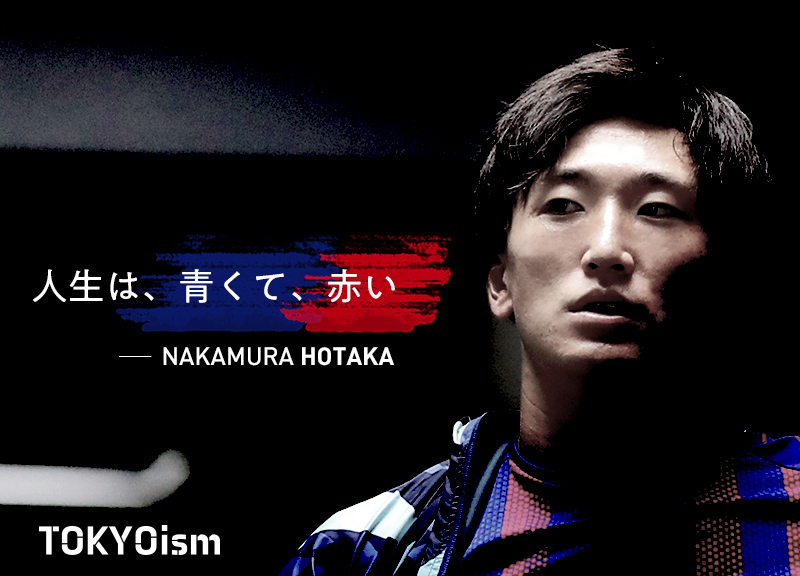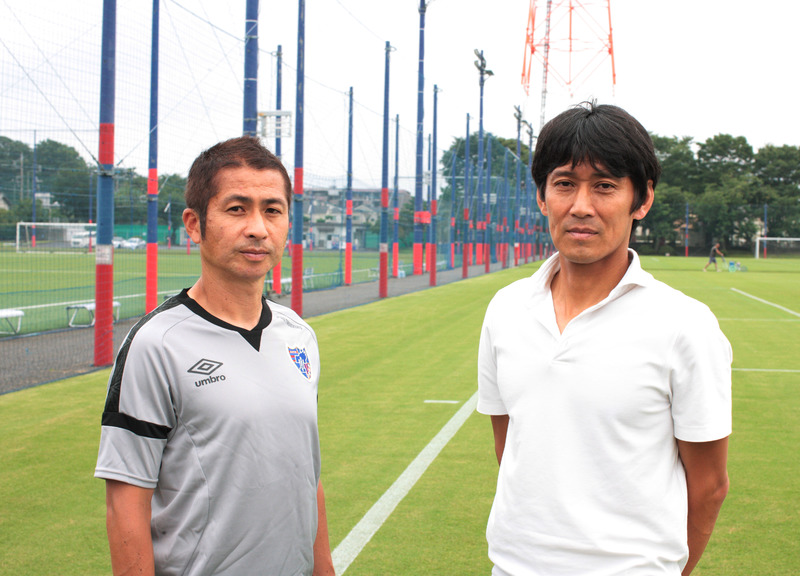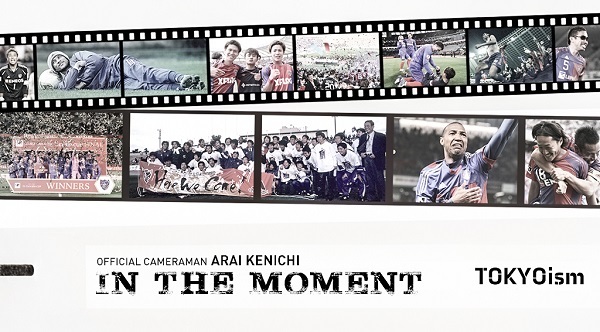Negativity and stubbornness seem to be two sides of the same coin. It is precisely because we delve deeply into things that we sometimes question ourselves and worry. On the other hand, for those who live a meandering life, there is neither the seriousness to think deeply nor the desire to stay true to oneself.
And experience makes people greedy. Not in a bad way. For professionals, greed is important. From my professional debut in February 2020 to winning the Levain Cup in January 2021, it has been about 11 months. During this short period, my heart has often been filled with anxiety, but I have also been brave and constantly motivated.
Everything is about the human, Hotaka NAKAMURA.
I have thought about quitting many times
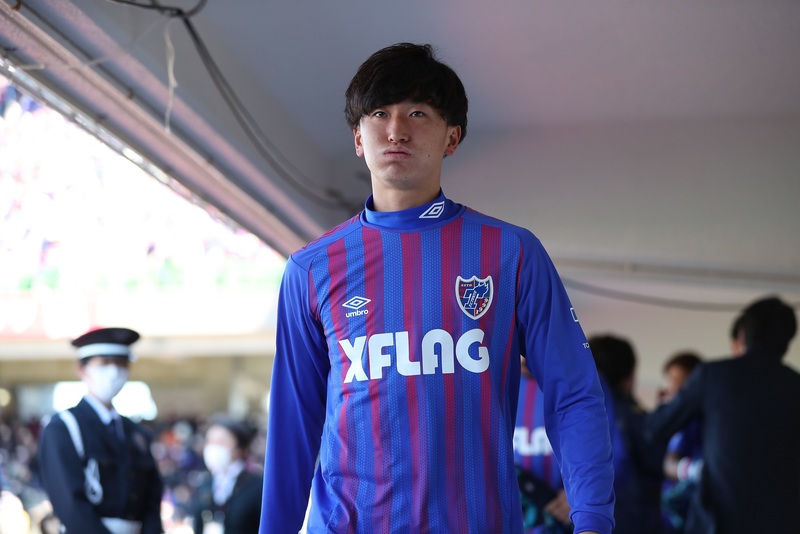
Nakamura was unexpectedly chosen as a starter for the opening game. February 25, 2020, Nihondaira, Shizuoka. Before the pandemic, Nakamura stood on the stage of the packed stadium with a lively audience.
"I was really surprised. To be honest, when I first joined the pros, I didn't think I had much to offer. The Okinawa camp was a fresh start for me. I couldn't keep up with the speed of the pros at all. However, towards the end of the camp, I played left back for the first time in a practice match and managed to hold off Ryo GERMAIN from Sendai. I think that changed how people saw me. Two days before the opening game, coach Kenta HASEGAWA told me, 'You'll be starting at left back.' But when I actually played, I didn't feel confident at all. I just had a feeling of 'This could be bad...'"
From the beginning, he was a player who was very interested in human nature. Basically, he speaks with his feet on the ground. He is also good at objectively viewing himself. He also describes himself as "thinking negatively, looking down on himself, and comparing himself to others."
However, what is interesting is that, when listening to him speak, he occasionally shows a roughness, confidence, and determination that exudes strength. He is calm yet passionate. Such emotional fluctuations can also be felt from Nakamura's career trajectory thus far.
Junior high school, high school, university. He is a rare professional soccer player who has always said, "I have tried to quit soccer seriously" every time.
I first encountered soccer in second grade. I started as a goalkeeper. In fifth grade, my coach recommended me to try playing as a side back, and it became my calling. Since then, it's rare for a player to have a career solely as a side back until becoming a professional.
He already had a calm demeanor from this time.
"Physical and leg strength have always been my weapons. However, I was really bad at playing, so I didn't play soccer with the feeling that my children would enjoy it. I was determined to go with a modest play style."
I suffered from Osgood-Schlatter disease in junior high school, which caused pain in my knee. That was not the reason I first gave up soccer, however.
"I was really a failure in junior high school, ability-wise. I looked around and completely lost my confidence, and soccer wasn't fun at all. I always wanted to quit."
After enrolling in Nihon University Fujisawa High School, Masaru Hidaka suffered an injury during his first year and was unable to play soccer again. He was devastated, but with the support of his coach, doctor, and understanding peers, he was able to overcome his fragile state of mind.
"I was able to return after one year and play for the A team from around May of my third year of high school. Without the support of those around me, I think I would have ended up rotting away."
He is just honestly talking about his feelings at that time, but his self-evaluation is not high at all. Nakamura's basic attitude, which can be seen from his straightforward tone of "I think I was rotten and finished", is very clear.
In the end, I was soccer.
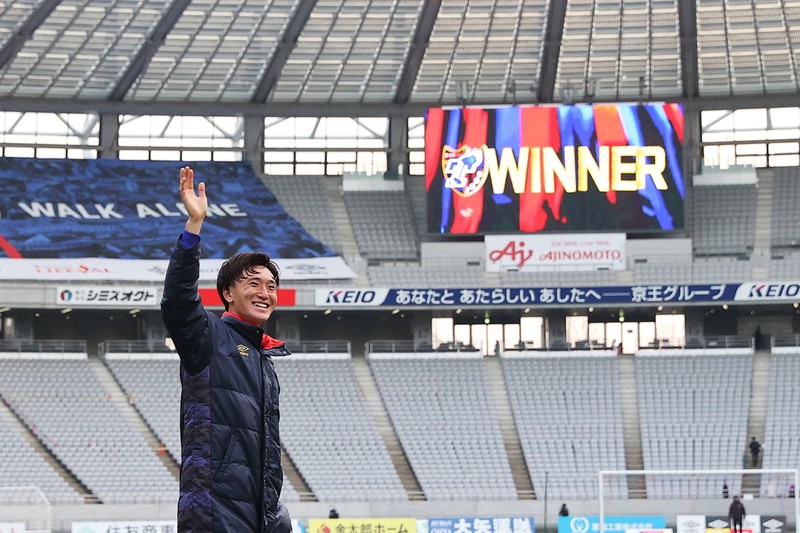
If this is the end, he will just be a timid young man. Of course, that's not the case. From here on, Nakamura's strength of perseverance will gradually seep out.
He entered Meiji University and showed his talent. In his fourth year, he represented Japan and won the World University Games. He also won titles with Shuto ABE, who joined the Tokyo team at the same time as him. Looking around, there were only "confident players who compete in soccer."
Nakamura remained calm even there.
"I was the only one who did job hunting. I actually did company interviews and self-analysis. Instead of appealing my leadership skills, I wrote about how I can contribute to the organization by overcoming challenges and achieving goals. I am a steady type. Even now, soccer is not just about having fun for me. It's a world where I can't survive without making it my profession. It was the same in high school, college, and even more so when I became a professional. I have to make a living and if I can't perform well, retirement is waiting for me. Furthermore, my skills were not good and I always saw myself lower than players who were determined to become professionals. They had some kind of complex."
However, it is also true that my past self had been living without lying to myself. Even though I had thought "I want to quit" and "I have no confidence" at times, the fact remains that I have continued playing soccer until I reached a level where I could become a professional.
"I realized it towards the end of my job hunting. When I calmly looked at myself, I thought, 'After all, I want to play soccer.' Even now, I sometimes feel that my life and thoughts about soccer are different from those of people of the same generation. However, when I take soccer away from my current self, what can I compete with? Naturally, the only thing I can compete with using the power I have now is soccer. It's a tough world, but I decided to go for it."
One year has passed in the professional world I jumped into. I want to convey my current thoughts to the me who was hesitating a little while ago, Nakamura said.
"I think it's great to be a professional. The difficulty and pressure are no joke. But more than that, in this world, I can really feel that 'I am living my life to the fullest right now'. Even though there are things that don't go well, trials, and walls that I constantly hit, I have come to think that this kind of life is more enjoyable."
It's not about enthusiasm or momentum. It's because I carefully thought through and made a decision, that the voice of my heart reached me clearly.
Calm and self-deprecating, I couldn't beat my stubborn self who continued playing soccer. Nakamura accepts his weaknesses and lives as a professional soccer player with dignity.
Language of protection. And Kaoru Misaka
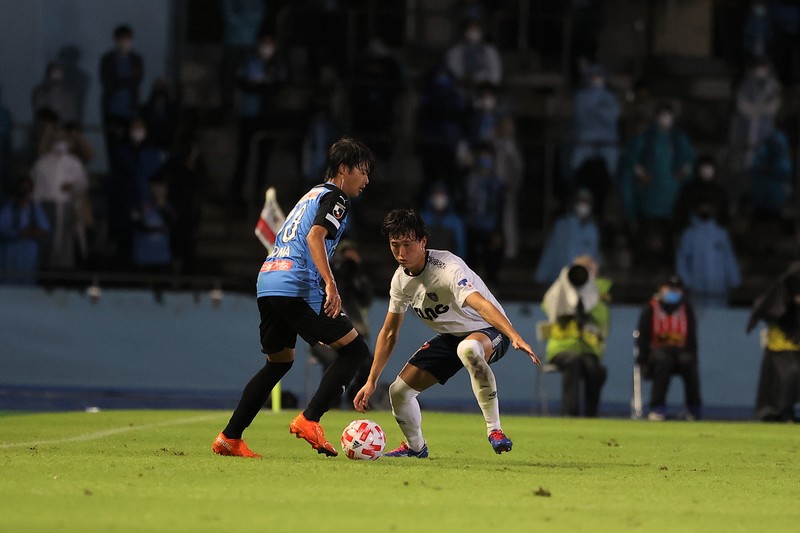
The needle of thought goes back and forth between minus and plus. What comes out are phrases full of emotion that deepen the listener's interest. On the other hand, Nakamura sometimes utters words filled with a different charm.
It is the language of play. On the pitch, there is someone who behaves under a very logical mindset. He also has the ability to accurately describe movements in words. There was a moment when I realized this.
On July 22, 2020, at Sapporo Dome. In the second half, Sapporo's dribbler, Chanathip, broke through and created a desperate situation. Nakamura, who was chasing from behind, caught up with the opponent and successfully covered at the perfect timing. He showed his ability to stop the tough opponent on his own. The following week at Kashima Stadium, in a closely contested match against Kashima, there was another crisis in the second half when the opponent broke through. Once again, Nakamura ran a long distance to catch up with the enemy and made a determined cover. In both matches, he showed his outstanding defense, utilizing his speed and strength.
Nakamura had been executing plays with even more cunning judgment than imagined.
"(The play that stopped Chanathip) I played while calculating how fast I could catch up, and at what angle I could slide in to stop it."
He proudly boasts that he stopped it with a calculated play. His strength in one-on-one defense is Nakamura's true strength. So, not just his physical abilities such as strength and speed, but what approach is he using to stop the enemy?
"In terms of my playing style, I am often asked about defense. Within myself, I have a methodology for 1-on-1 situations that I have cultivated throughout my career as a defender. I cannot reveal all of it, but there are different approaches depending on the situation. I am aware of the specific details of the situation and the timing of when to press or wait for the opponent. I have a conscious effort to verbalize my actions in each situation. For example, I determine the angle of my body based on how the opponent is holding the ball, and decide where to make the tackle. Every game, I adjust to the opponent and analyze my performance while watching the footage, utilizing my own methodology."
Of course, the "business method" is important. I can't easily reveal it, but I have a strong commitment to one-on-one competition, saying, "If I didn't have this weapon, I wouldn't be a professional."
Speaking of players who have had intense battles with Nakamura, there is Kawasaki Frontale's Kaoru Mitoma. The two were classmates and have faced each other since their days at Meiji University and then at Tsukuba University. In particular, the two had a fierce battle in the semifinal round of the Levain Cup on October 7th last year. In the second half, manager Kenta Hasegawa put Nakamura, known as a "1v1 specialist", against Mitoma on the left side to stop him. He said, "To counter a player with special abilities like Mitoma, we also used a player with special abilities like Nakamura." And so, the intense battle began.
In the first play, Nakamura was caught behind by Mitsumata and allowed a breakthrough to a deep position. The following offensive and defensive plays. From here, Nakamura also showed determination and stopped Mitsumata, who was using sharp turns and propulsion, one after another. In the end, the game ended with a 2-0 victory for Tokyo. "He stopped that Mitsumata," and Nakamura received high praise.
"No, that was humiliating."
The harsh words that came out were directed at myself once again. Nakamura reflects on that confrontation like this.
"There were certainly many threatening players among the opponents I faced in my first year as a professional, but Thales was by far the most impressive. I had been facing him since our university days, and back then he was at a level where it was just about stopping him individually, so our strategy was to "just stop Thales and we'll be fine." However, now at Frontale, he is surrounded by talented players, making it even more difficult to deal with him. He was the most troublesome opponent. And then there was that match in the Levain Cup. It was humiliating to let them score first. I am a player who puts my life on the line in those kinds of situations. Even if I stop him nine times, if he gets past me once and it leads to a goal, it's a defeat for the defense. For me, victory can only be achieved through a complete victory. I am still not satisfied with that match."
Late at night after the match, the email sent from Mitsumata read, "We will definitely not lose next time." A classmate who has now become a top attacker in a rival club and represents J League. The showdown between the two, who have mutual respect for each other, will become a new hot topic in the Tama River Clasico.
"I am competing one-on-one. The desire to not lose there may be unbeatable by anyone."
The moment when the needle of emotion swings strongly. Once again, this range of motion is interesting for Nakamura.
Overturning impressions. My true self
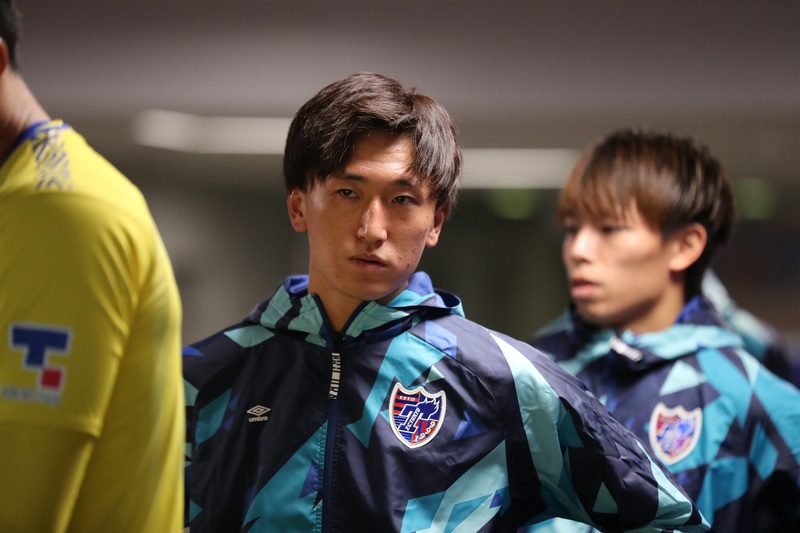
Defensive craftsman. This year, this image may have become established among many J-League fans. With such a logical and dedicated approach to defense, there is no doubt about the evaluation.
In the first ACL, I also tasted the bitterness for the first time. In late November of last year, just before the first match in Qatar, I started to hear about this project from Nakamura. "I can't wait," he said about his Asian debut, but it turned out to be the worst start as he gave away a PK to the opponent and the team lost. "If we are scored on even once, it's a defeat for the defense." The reality of those strong words happened right before my eyes.
"I want to remember the frustration. There was also a time when I was dragging it a little. However, in fact, I accepted everything in myself about that. I have to accept my current level of making a foul there and have to do it. A position always next to conceding a goal. How to increase the probability of defending even in such a situation. Even if irregularities are inevitable in the opponent's attack, I have to do it with my soccer life at stake. I want to use the experience of feeling the harsh world firsthand as nourishment."
That rebound mentality was proven on the stage of the Levain Cup final. They held back the Kashiwa Reysol players who were pressing them with a sticky defense. They won't lose focus anymore. Surely, while throwing spells in their minds, they fought and won on the national pitch.
Now, Nakamura is facing a new worry. The theme is how to overturn the reputation of being a "defensive-only player", which is not ideal for him.
"Over the past year, I have certainly been focused on my defense. Of course, as a DF, defense is the most important. However, the play that I have used as my weapon is not just that. I steal the ball, move forward, and get involved in the attack from a high position. Showing that intensity and continuously switching between offense and defense is my greatest weapon. I will say it again, it's not just about defense. What I really want to prove is that I can also contribute in other aspects of the game."
The team introduced a new [4-3-3] system last year. It was Nakamura's first experience. "For example, the system with side half like [4-4-2], the way the side back gets involved in the attack is completely different." In the current tactic of attacking quickly and vertically with the wing in a high position, how effectively and functionally the side back can participate in the attack. The dilemma was ultimately left unresolved, and the 2020 season ended.
"At the end of December, I went to a training camp for the U-23 Japan national team candidates and consciously played to remind myself of my attacking mindset. In the practice match, I was able to assist, and I realized once again that this is the kind of play I aspire to. For example, in Tokyo, I was really watching the play of Takumi NAKAMURA, who plays in the same position. He has a sense of build-up and passing ability that I lack. That is something that is also required by the team, and I felt that I needed to grow in that area since my first year as a professional. However, my original ideals and strengths are definitely not the same as being a side back like Takumi. I need to be more daring and contribute to the attack with more impact. I heard that my senior, Sei MUROYA, also had a time when he forgot his strengths and couldn't play in matches. At that time, he resolved to 'let go and push forward again,' which led him to become the Sei we see now. I couldn't fully achieve that in my first year. After all, it is by positively pursuing my own play that new positive challenges arise. In 2021, being able to adopt this mindset is a very significant thing for me."
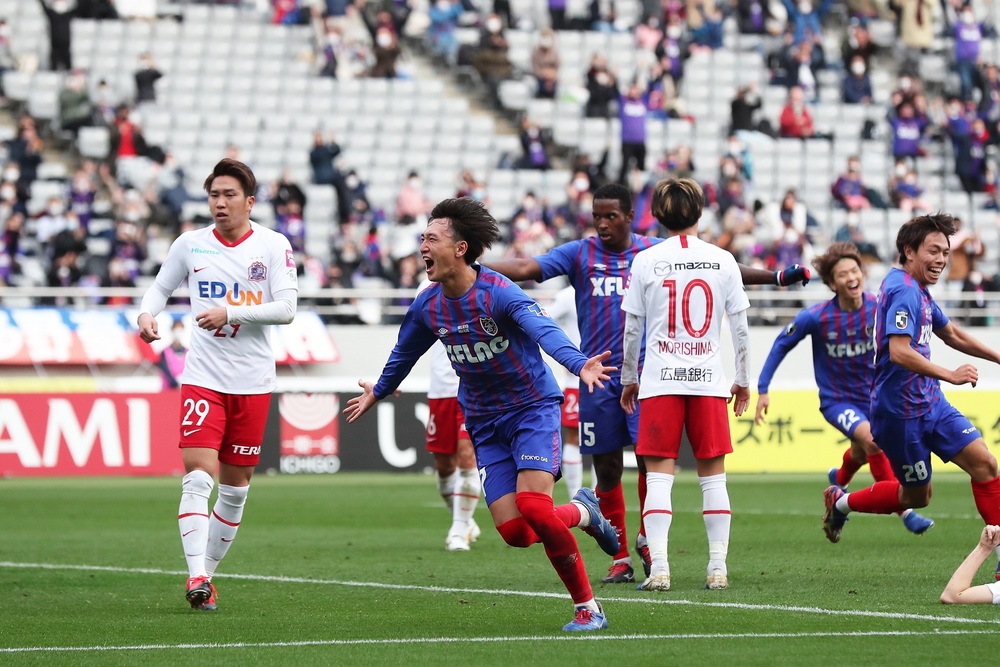
He is probably the most sensitive person. He always deeply thinks, worries, and thinks again about the events, facts, and himself in front of him. In this loop, he goes back and forth between calm=negative thinking and passion=positive thinking. This has been Hotaka NAKAMURA's way of life since long ago.
Blue and red. It can also be described as a contrast between calmness and passion. His life is blue and red. Perhaps the reason why Nakamura's struggles fit so well with this team is because of such overlapping.
◇Hotaka NAKAMURA Profile
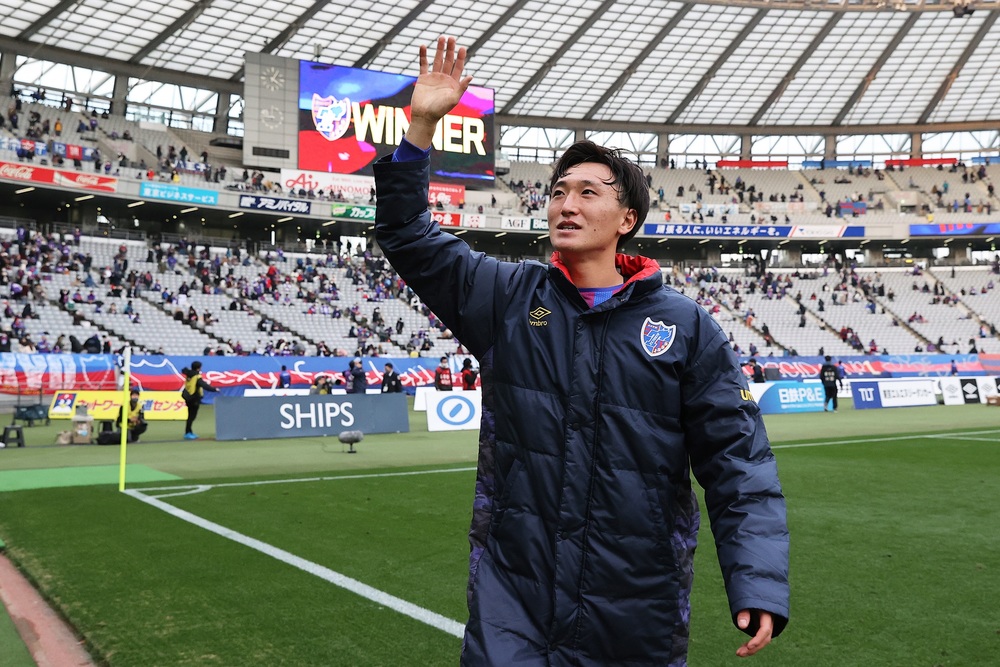
Date of Birth: August 12, 1997
Height/Weight: 177cm/72kg
Hometown: Kanagawa Prefecture
Career:
Yokohama F.Marinos Primary Tsuihama → Yokohama F.Marinos Junior Youth Tsuihama → Nihon University Fujisawa High School → Meiji University
Photo by Kenichi Arai
